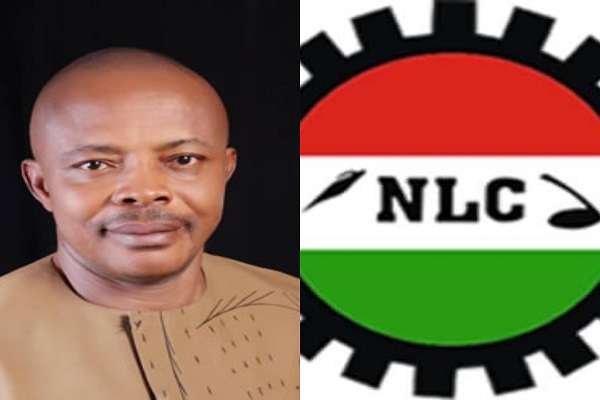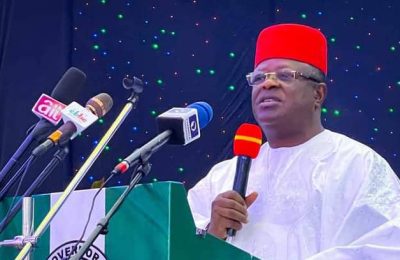The Nigeria Labour Congress (NLC), has commenced training of its affiliate union members on how to engage government policies to better workers’ welfare and living condition.
President of the NLC, Comrade Joe Ajaero, at the opening session of the 2023 Harmattan School in Abuja, said; ‘In the course of the five days that this programme will last, the participants will have the opportunity to learn, build new insights, develop new strategies that will be deployed into doing trade union work, interact and build solidarity among themselves.

“In the ever changing world of work, as trade unions, we should prepare ourselves to engage with the employers in the workplace and government in the interest of the workers and the masses.
In order to efficiently engage any policy, whether at the level of the workplace or the larger society, the trade unions must equip their members to understand policy making processes, its implementation, monitoring and evaluation.
“At the level of government, trade unions deal with macroeconomic policies, industrial policy, climate change policy and many more”
Tagged “Building Workers’ Skills for Policy Engagement”, the 2023 Harmattan School, had in attendance the International Labour Organisation’s Country Director, Vanessa Phala, and other labour leaders.
Ajaero said: “To start the process of policy development requires a very comprehensive understanding of the problem the policy is intended to address. This can be done through collection of the relevant data, the study of the impact assessment on the sampled area of policy development and the need to identify the implicit cause of the problem being studied for policy development.
“It is also important to understand the legal and regulatory framework concerning the policy processes. Hence, we need to be acquainted with the relevant laws, the rules and regulations governing the issue for which the policy is being developed.
“Unions as democratic institutions and the voice of the working people and the masses rely very heavily on the consensual inputs and contributions of the members to take decisions. It is on this premise that as trade unions, we must reach out to our members to tap and gather data from their experiences to create policy choices to ascertain the impact assessment of the policy on the members and the people.
“A very good policy document is not good enough, if it is not well implemented for the benefits of the people or the organization concerned. As a union activist, one thing that I have noticed over the years, that is lacking in the trade unions or that is not being done effectively is monitoring and evaluation of our programmes and policies. We must develop mechanism to monitor and evaluate our policies and programmes to know how impactful they have been on our members.
“Trade unions as advocacy and workers’ rights organizations cannot function effectively to fight for the rights and defend the interests of their members, if they do not have a handle on how to craft good policies that will take into consideration the interests of their members. This is more so, as they will not undertake effectively their primary responsibilities like engaging in collective bargaining, dispute resolution, protection of workers to fair wage, agitate for safe working conditions, enforcement of labour laws and regulations, political advocacy on behalf of their members and the people, if they are not guided by a number of policies.
“The Nigeria Labour Congress as an organization that works with set rules and guidelines, had developed its policy documents on issues like collective bargaining, socio-economic transformation, gender equity, internal democracy, national and international solidarity, NLC and unionism, labour and politics and workers education.
“The NLC Policy Document serves as a guideline to set rules, principles and goals to control the decisions and actions of the Congress. It also sets the framework for Congress’ engagement with the employers and government.
“It is in light of the foregoing that workers’ education which is interactive and participatory is focused on building workers knowledge on issues that are very fundamental to the struggle for the defence of the rights and interest of the workers in the workplace and in the society.
“It is with this in mind that the modules of the 2023 Harmattan School are reviewed to take into consideration the need to inculcate for interaction on the elemental framework for policy designing, implementation, monitoring and evaluation and the need for feedback mechanism.
In the face of adversity and brutality encountered while advocating for the rights of workers to earn their legitimate income and benefits, our resolve remains unwavering. We are motivated to continue our efforts towards achieving decent work and improving working conditions in the formal and informal sectors of the economy.
“The recent assault on workers and their leaders in Imo State poses a grave threat to freedom of association and collective bargaining as enshrined in Section 40 of the 1999 of the Constitution of the
Federal Republic of Nigeria as amended and the ILO Conventions 87 and 98 on Freedom of Association and Collective Bargaining, and should unequivocally be condemned by all people of goodwill.
“The only thing that can assuage our pains is for the Imo State Government to address all labour issues and return the so called ‘ghost workers’ to their jobs, pay all outstanding salaries and pensions and call back all victimized workers to their jobs.
“It has become very necessary for governments at all levels to recognize that life and living conditions are exceedingly difficult, especially for working people in both the formal and informal sectors of the economy. The removal of subsidy on petroleum products has further exacerbated the challenges faced by working people, unleashing severe pain and contributing to galloping inflation and increasing inequality and poverty. We must reckon that a well-motivated and well-remunerated workforce has a positive impact on productivity and national development.
“As we anticipate the commencement of negotiations for the National Minimum Wage in 2024, we seek the understanding of all stakeholders to ensure that we use this opportunity to arrive at a Minimum Wage commensurate with the prevailing cost of living. The ultimate goal, though, is to establish a living wage that covers the cost of living and make allowance for some savings by the workers.”
READ ALSO FROM NIGERIAN TRIBUNE







